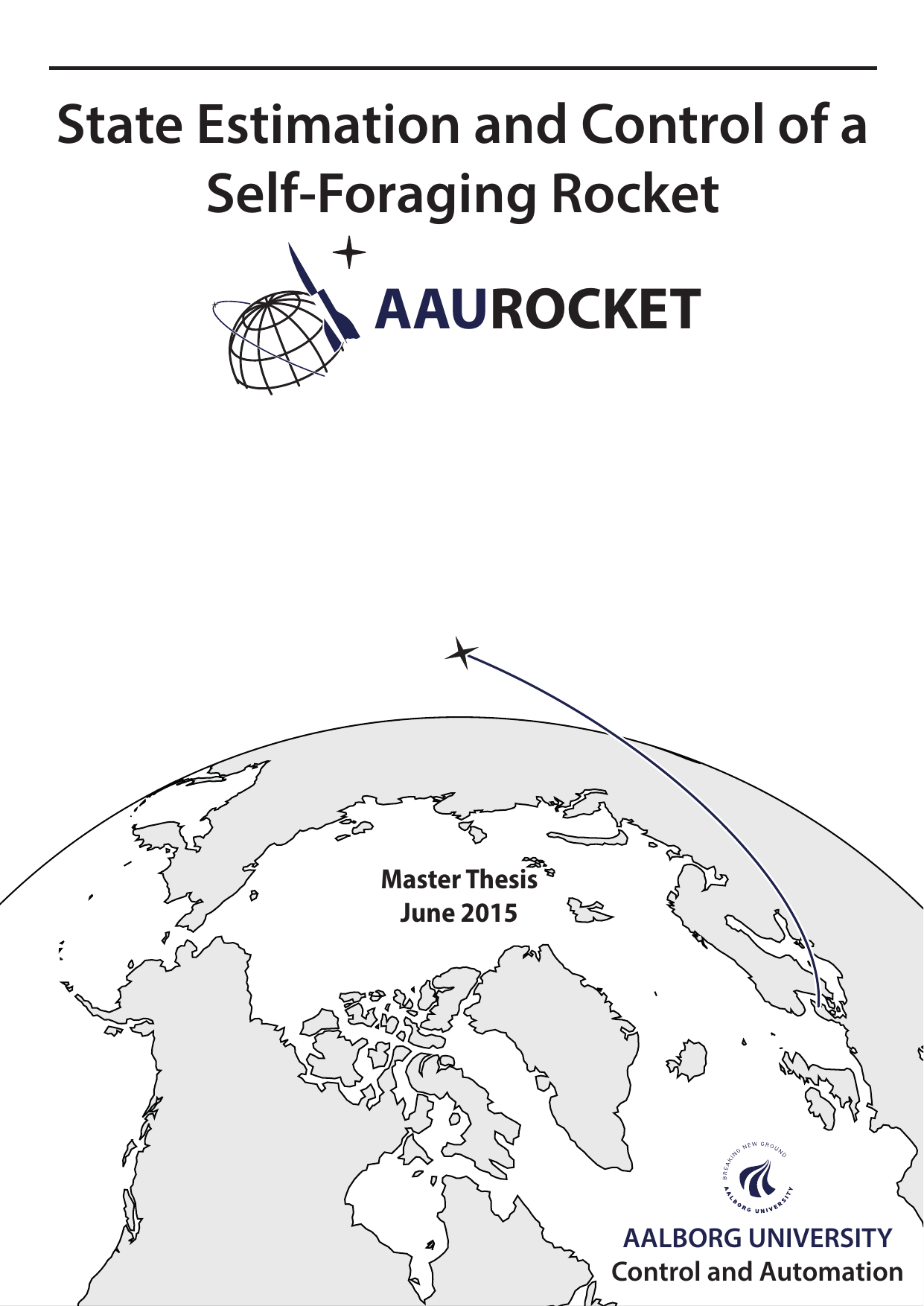
State Estimation and Control of a Self-Foraging Rocket
Translated title
Tilstands Estimering og Regulering af Raket
Authors
Term
4. term
Education
Publication year
2015
Submitted on
2015-06-03
Pages
162
Abstract
This master thesis describes the design and development of position and attitude determination and control of a rocket. The project is motivated by the general need of cheaper launch opportunities for an ever growing micro satellite market. The goal is to achieve a cheap and efficient solution in the form of the self-foraging rocket concept, inspired by the work of Yemets et al. at Dniepropetrovsk National University. The overall design of the rocket is done from scratch starting with the initial mechanical concept of the rocket, followed by the sensors and actuators it will employ, and consecutively the mechanical dimensioning of each thruster to be utilized. Additionally a general ascent trajectory is calculated to launch the rocket into orbit, to be tested in a complete simulation environment designed in Simulink. Furthermore an extended Kalman filter is designed to estimate the states of the rocket, while both waypoint and sliding mode is designed for the control of the rocket. The EKF was shown to be able to sufficiently estimate the states of the system in three distinct nominal tests. A waypoint tracking controller, for following an optimal ascent trajectory, and a sliding mode controller is implemented as position control systems for launching the rocket into orbit. Despite for showing good performance for controlling the rocket, none of the controllers are able to inject the rocket into orbit with satisfactory results
This master thesis describes the design and development of position and attitude determination and control of a rocket. The project is motivated by the general need of cheaper launch opportunities for an ever growing micro satellite market. The goal is to achieve a cheap and efficient solution in the form of the self-foraging rocket concept, inspired by the work of Yemets et al. at Dniepropetrovsk National University. The overall design of the rocket is done from scratch starting with the initial mechanical concept of the rocket, followed by the sensors and actuators it will employ, and consecutively the mechanical dimensioning of each thruster to be utilized. Additionally a general ascent trajectory is calculated to launch the rocket into orbit, to be tested in a complete simulation environment designed in Simulink. Furthermore an extended Kalman filter is designed to estimate the states of the rocket, while both waypoint and sliding mode is designed for the control of the rocket. The EKF was shown to be able to sufficiently estimate the states of the system in three distinct nominal tests. A waypoint tracking controller, for following an optimal ascent trajectory, and a sliding mode controller is implemented as position control systems for launching the rocket into orbit. Despite for showing good performance for controlling the rocket, none of the controllers are able to inject the rocket into orbit with satisfactory results
Keywords
Space ; Raket ; Regulering ; Autmation ; Estimering ; Optimering ; Missil
Documents
